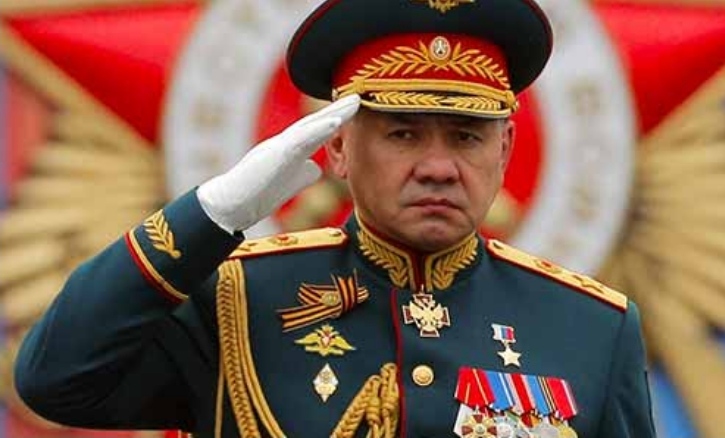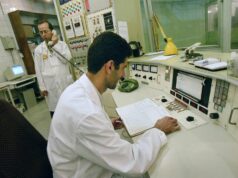Russian Defence Minister Sergei Shoigu To Visit India Later This Year

India has a strategic partnership with the United States and cooperation on global issues. However India pursues an independent foreign policy. We have never joined any alliance and will not do so in future.
We take independent decisions regarding defense procurement, and therefore there is no contradiction between further development of defense relations with Russia and those with the United States.
Between India and Russia, there are traditional friendly and partnership relations. Our military cooperation with the Russian Federation will continue, taking into account the interests of India in the field of national security. This was the clear view given by the Indian Ambassador to Russia.
Russia has demonstrated understanding of India’s position on the border issue and supported a bilateral dialogue between India and China aimed at resolving problems.
And we are completely satisfied with the progress of our military-technical cooperation with Russia and the rapid delivery of weapons, so we look forward to the visit of Defense Minister Sergei Shoigu to India towards the end of this year, Said B V Varma the Indian ambassador to Russia.
Russian Defence Minister Sergei Shoigu could visit India towards the end of this year as Delhi seeks to expand its traditional defence partnership with Moscow.
Russia has assured India defence supplies amid stand off with China.
On the recent Sino-Indian standoff, Varma noted, “India and China are negotiating through diplomatic and military channels about the situation on the Line of Actual Control in the border areas between the two countries. In particular, Indian Foreign Minister Subramanyam Jaishankar and National Security Adviser Ajit Doval have conducted talks with their Chinese counterparts.“
“At the same time, while India seeks to resolve these problems through dialogue, we have made it clear that we will not do business with China as usual until there is a complete disengagement of military forces along the Line of Actual Control and de-escalation in the border areas in accordance with bilateral agreements and protocols. As Prime Minister Modi noted, this is an era of development, and the era of expansion has come to an end.”
He, however, pointed out that bilateral issues are not on the agenda of the RIC, BRICS or SCO formats. Recently Russia held meetings of the foreign ministers of the countries belonging to these three associations, and none of them touched upon bilateral problems. “We are grateful to Russian Foreign Minister Sergei Lavrov,” the Ambassador affirmed.
The envoy further pointed out that India does not believe in trade war with any country. The ban on some Chinese apps is a measure to ensure digital security.
“In order to support domestic producers, given the severe economic impact of COVID-19, Prime Minister Modi announced “Atmanirbhar Bharat” program that aims at strengthening the country’s domestic capacity. But our doors remain open for foreign cooperation.
And here, by the way, there are several opportunities for cooperation between India and Russia in the field of defense production, construction of railways and inland waterways, pharmaceuticals and digital technologies. I believe that Russian and Indian companies will build productive and profitable partnerships.”
When asked about Indo-Pacific construct the envoy explained, “We believe that the Indo-Pacific Concept is aimed at promoting cooperation, connectivity and compliance with international law and norms, in one of the most significant parts of the world.
And the central role of ASEAN in Indo-Pacific is one of the key principles. Along with India’s Act East Policy, our Prime Minister announced the Act Far-East Policy, last year in Vladivostok, under which India is considering cooperation with Russia on Russian territory of the Far East.
There is a huge potential for cooperation in the areas of energy, economics, trade, investment opportunities and communications in the territories from Yamal to Vladivostok and up to Chennai.
India and Russia share common interest so that the Indo-Pacific region becomes a region of peace, stability and economic prosperity, so that no country seeks unilateral advantage at the cost of the entire region.”
Meanwhile in Delhi addressing a meet organised by ORF on BRICS Russian envoy to India Nikolay Kudashev stated, “BRICS was not invented to fight or contain anyone, rahter than to support efforts of the international community on the issues related to peace and sustainable development, democratization of global govenance, financial and economic architecture reform, promotion of humanitarian contacts.”
“At the same time, we are against any unilateral geopolitically motivated actions and illegal extraterritorial sanctions, which create instability, mistrust and unpredictability.
This shared approach is vividly materialized in our growing coordination in various UN bodies, G20, East Asian Summit, OPCW and other structures. We proceed from the understanding that search for the unifying agenda and expansion of the common ground to find solutions for global challenges.”
“Today, when India is preparing to take over as the UN Security Council will remain a priority for us non-permanent member for 2021–2022, there are increasing expectations that we will further enhance our coordination within BRICS on the current international agenda.
We believe that moving towards these tasks we will approach the upcoming summit of BRICS in St. Petersburg this autumn with solid achievements and plans, which would lay ground for the coming Indian Chairmanship in the grouping in 2021,” Kudashev noted



